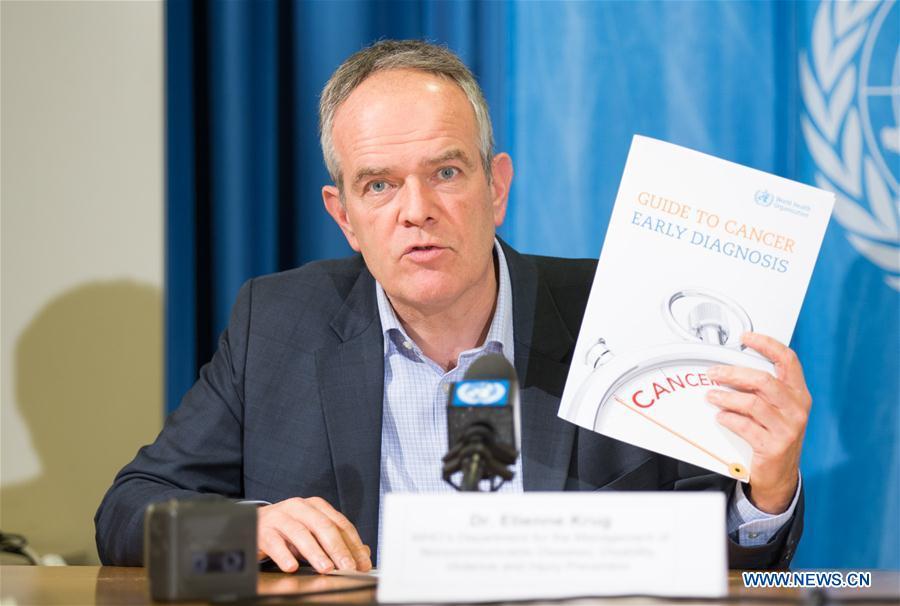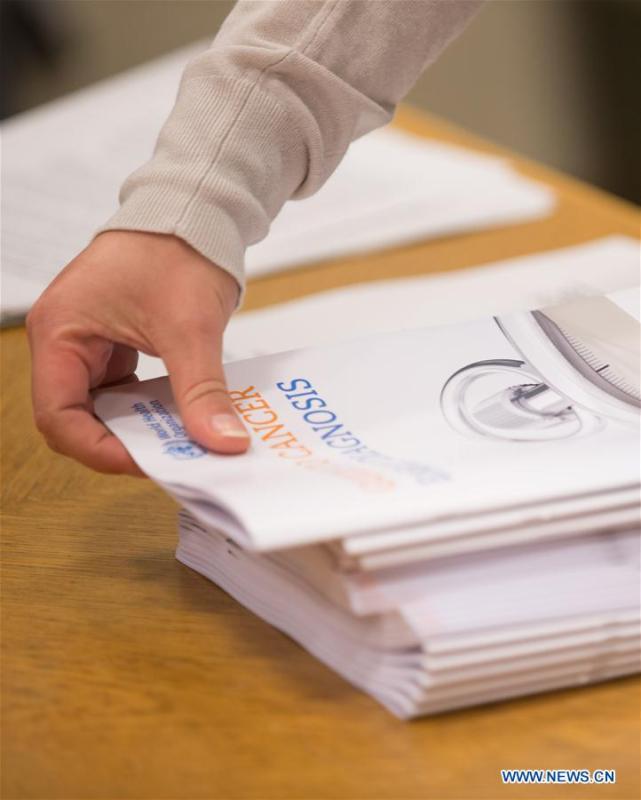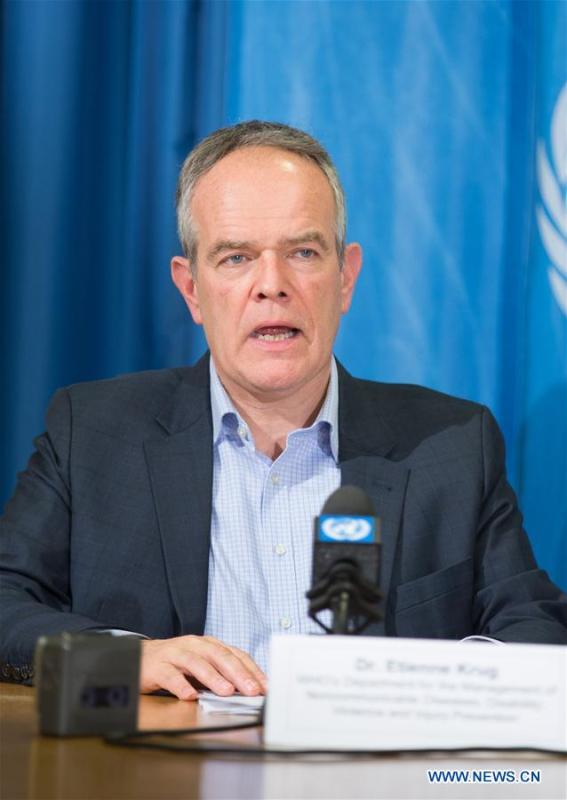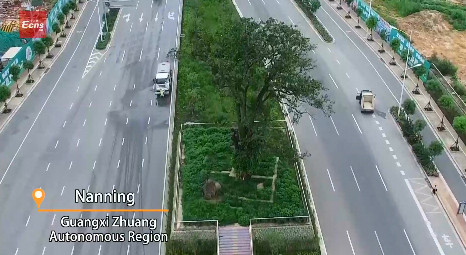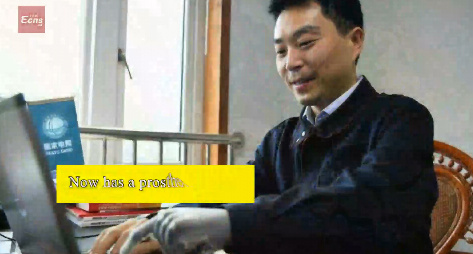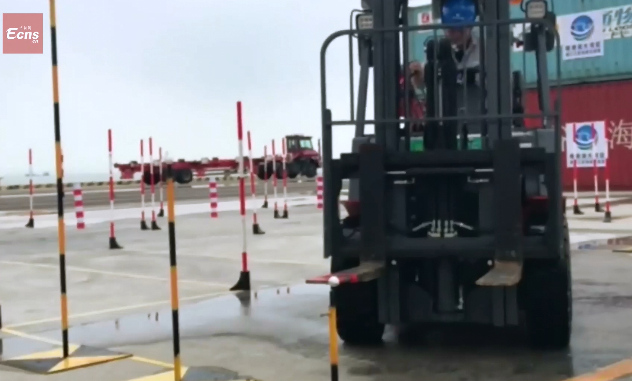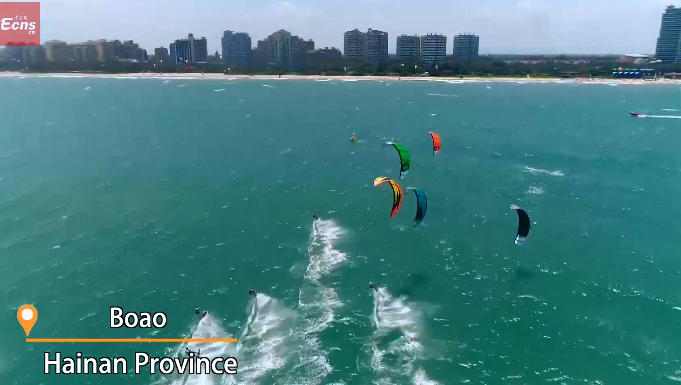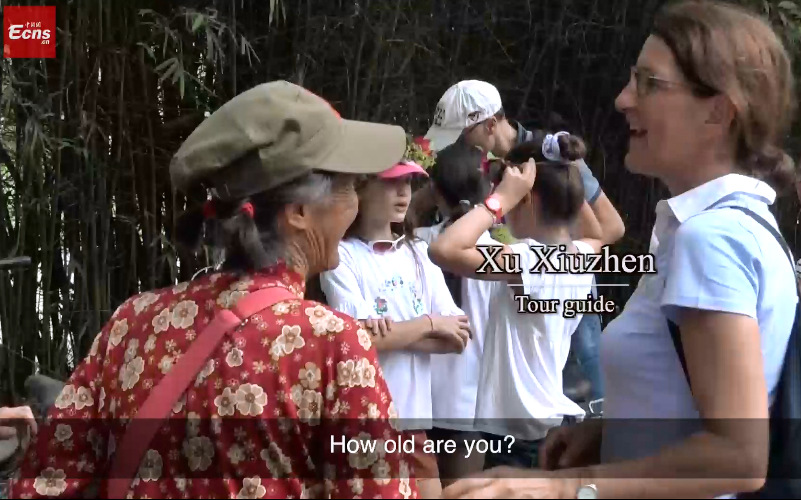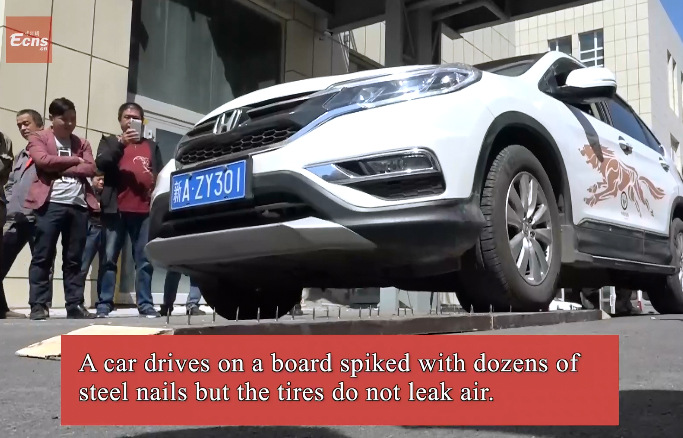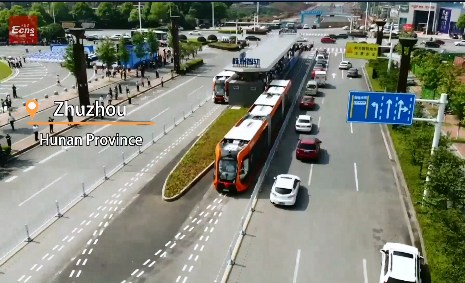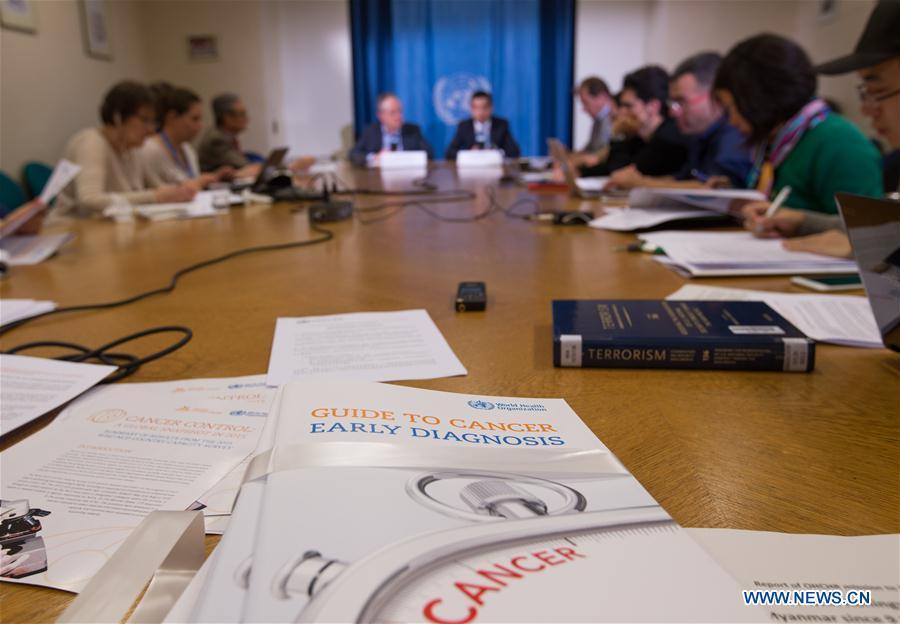
Photo taken on Feb. 3, 2017 shows a press conference held by the World Health Organization (WHO) to launch the Guide to Cancer Early Diagnosis in Geneva, Switzerland. WHO Friday launched a new guidance to better improve the chances of survival for people living with cancer by ensuring that health services focus on diagnosing and treating the disease earlier. (Xinhua/Xu Jinquan)
The World Health Organization (WHO) Friday launched a new guidance to better improve the chances of survival for people living with cancer by ensuring that health services focus on diagnosing and treating the disease earlier.
The new guide came right before the World Cancer Day, which falls on Feb. 4.
WHO said new figures released this week indicate that 8.8 million people died from cancer each year, mostly in low and middle-income countries.
One problem is that many cancer cases are diagnosed too late. Even in countries with optimal health systems and services, many cancer cases are diagnosed at an advanced stage, when they are harder to treat successfully.
"Today, almost one in six deaths globally are cancer or cancer related, more than 40 million people diagnosed with cancer every year," Etienne Krug, director of WHO's Department for the Management of Noncommunicable Diseases, Disability, Violence and Injury Prevention, told a press conference.
He added that cancer registered as the second leading cause of death in the world, following cardiovascular diseases.
It is estimated that 1.6 trillion U.S. dollars are lost due to cancer.
According to WHO's new guide to cancer early diagnosis, all countries can take steps to improve early diagnosis of cancer.
Steps to early diagnosis include improving public awareness of different cancer symptoms, encouraging people to seek care and investing in strengthening and equipping health services.
WHO said challenges are clearly greater in low and middle-income countries, which have lower abilities to provide access to effective diagnostic services.
WHO encouraged these countries to prioritize basic, high-impact and low-cost cancer diagnosis and treatment services.
The organization also recommended reducing the need for people to pay for care out of their own pockets, which prevents many from seeking help in the first place.






